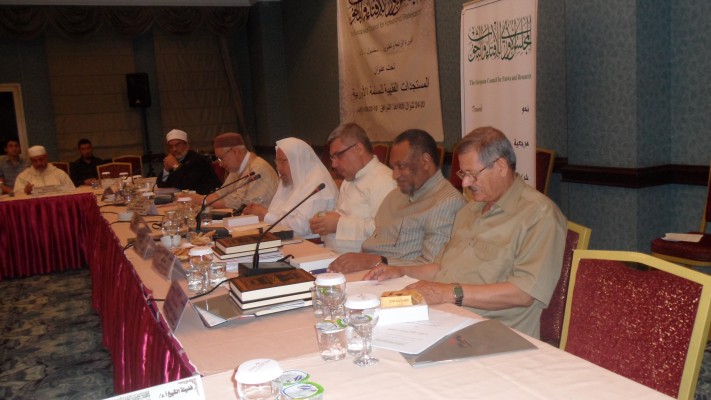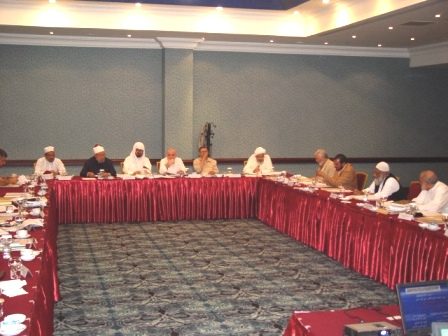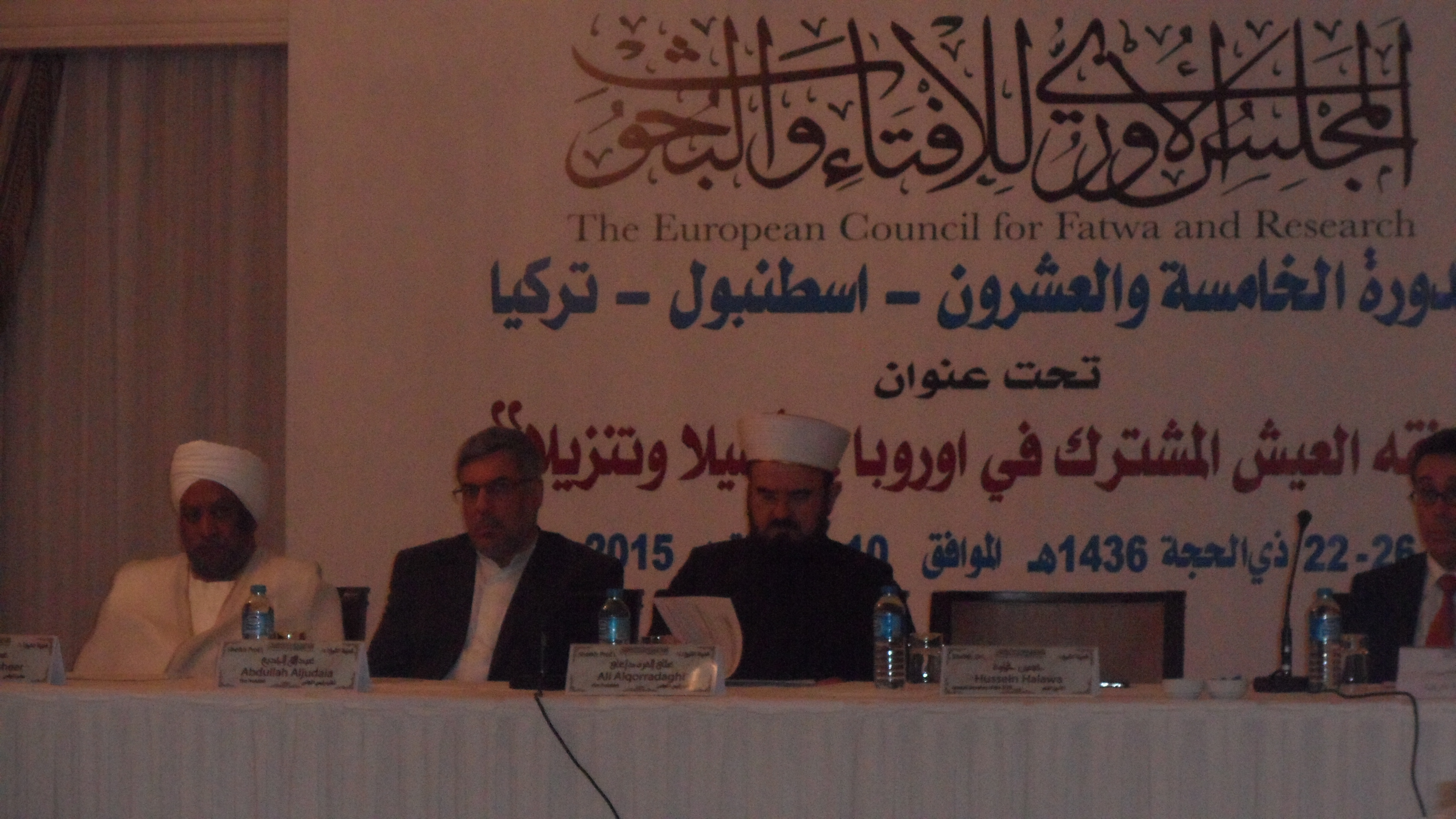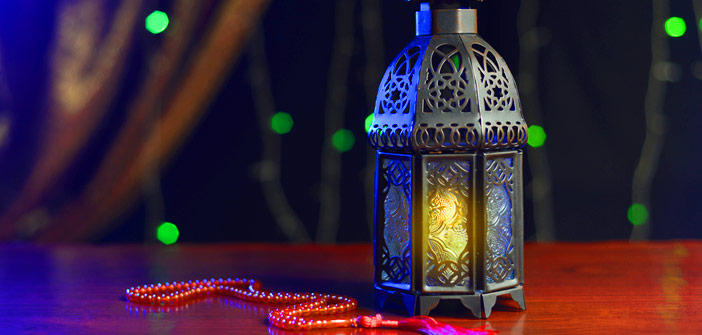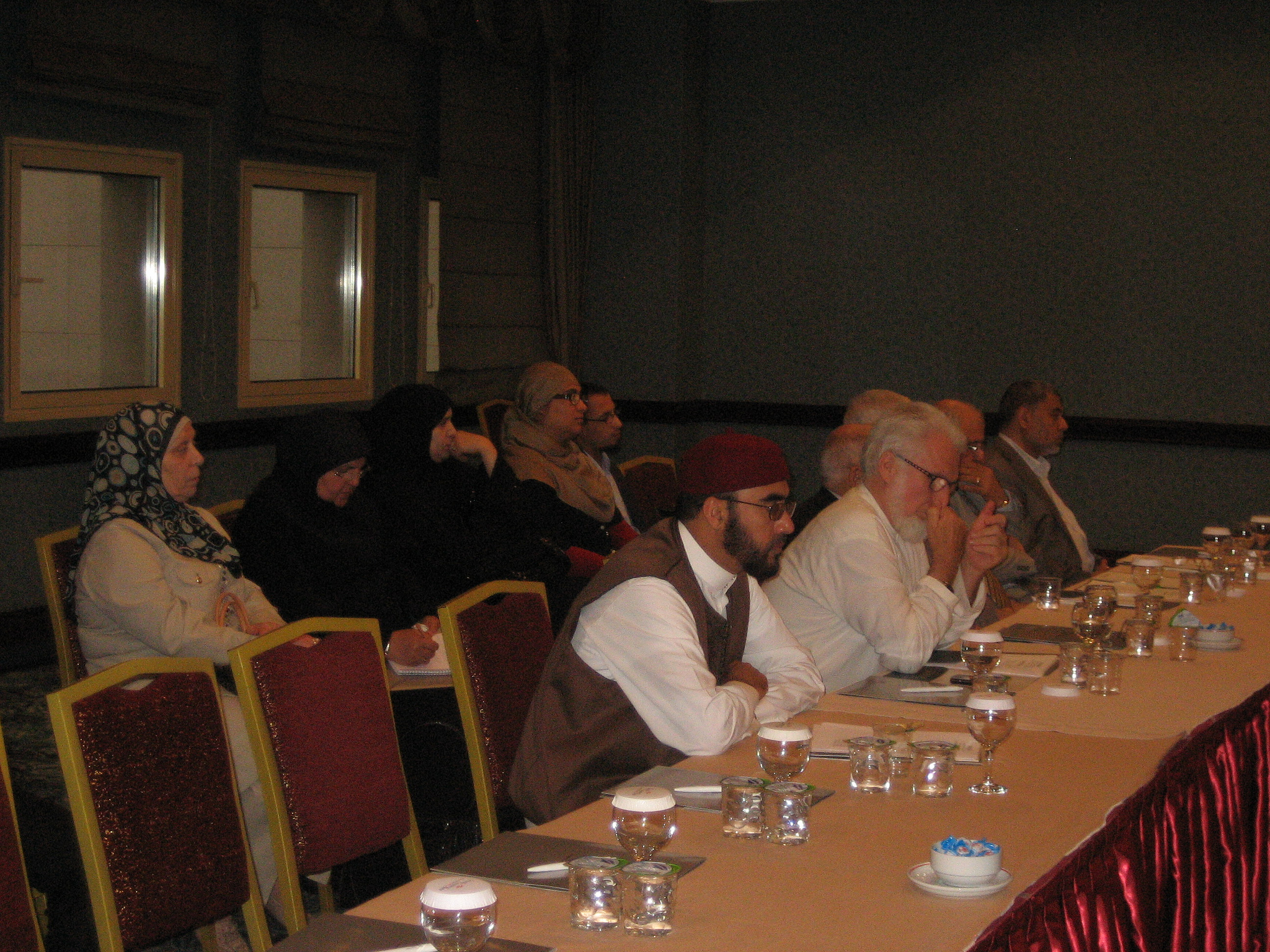The Thirteenth Ordinary Session of The European Council for Fatwa and Research
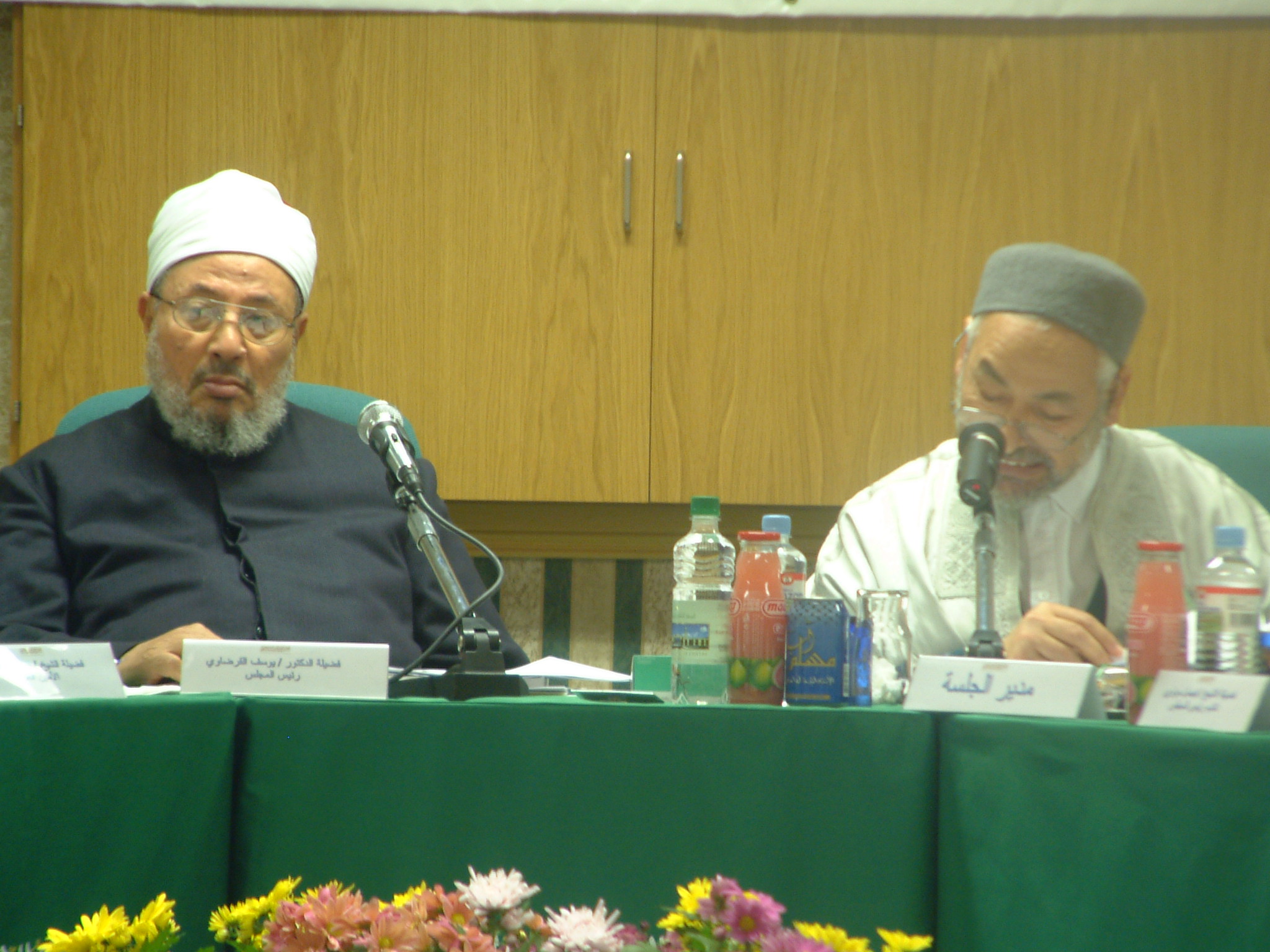
European Council for Fatwa and Research
Final Statement of
The Thirteenth Ordinary Session of
The European Council for Fatwa and Research
Held in London, England
During the period
20-23 of Jumadal-Ula, 1425 AH
07-10 of July 2004
In the Name of Allah, Most Gracious, Most Merciful
Praise be to Allah, the Worlds’ Sustainer, and peace be upon our leader Muhammad and on all his family and his Companions.
By Allah’s Grace and His Assistance the Thirteenth Ordinary Session of the European Council for Fatwa and Research (ECFR) was held in London, during the period 20-23 of Jumadaal-Ula, 1425 AH corresponding to 07-23 of July 2004, chaired by His Eminence Sheikh Yusuf al-Qaradawi, and attended by most of the Members of ECFR and a number of guests and observers. The agenda was covered in ten meetings including the opening, closing and administrative meetings.
Mr. Ken Livingstone, Mayor of London hosted the first meeting in the City Hall, in London where he delivered a talk in which he welcomed the European Council of Fatwa and Research to London and in particular to the City Hall for its 1st meeting for 2004. He added: “British Muslims make an enormous contribution to our society, reconciling their beliefs in the Islamic principles with the integration in British society to the mutual benefit of all communities”. Mr. Livingstone said: “the council provides invaluable advice to the system of Muslim affairs in Europe, and challenges unfounded negative stereotypes, issues such as the recent French ban on the Hijab and wearing conspicuous religious symbols in state schools, which is widely regarded by many religious and human rights groups as an attack on human rights. The freedom of religious expression
is just one of the many problems facing Muslims across Europe today”. He said: “I have publicly debated this issue with the Prime Minister of France and
am determined that London Muslims should never face the same kind of
discrimination or restrictions as are currently being considered in France and wider across Europe”.
Mr. Ahmad Al-Sheikh, chairman of the Islamic League in the UK, delivered a talk welcoming the guests and thanking the Mayor of London for hosting the opening meeting. Mr. Al-Sheikh wished for the Council the best success, and also expressed the honor he felt as the Islamic League was hosting the 13th session of the European Council for Fatwa and Research.
His eminence Dr. Sheikh Qaradawi also gave a talk. Firstly Dr. Qaradawi thanked the Mayor of London for his generous reception and welcomed the guests and the attendees. Then he summarized concisely the mission of the European Council for Fatwa and Research and the efforts exerted by the Council to serve Muslims in Europe and facilitate their positive integration into European society where they preserve their identity and take part in the public life in a way that benefits everyone. He stated that the topic of 13th session is family affairs as they are vitally important in the social life in general and in particular, due to the social risks threatening them, for Muslims living in Europe.
This session of the Council was dedicated to address the affairs of the Muslim family in the West since these are very important and have a profound impact on preserving the Muslim identity, children’s upbringing and the balanced integration.
In the administrative meeting, the Secretary General submitted his periodic report that covered the performance of the Council in the last period. The heads of Fatwa Committees in Britain and France and Research Committee, as well, submitted a short report about the performance of their committees covering the period since the last session. Sheikh Abdullah Ben Bayah submitted a report about the positive dialogue between the committee and the French and European authorities regarding the issue of Hijab in France.
Ten researches were submitted and deliberated:
- In his research entitled “ Taha Al-Alwani’s research on Fiqh of minorities – A commentary”, Dr. An-Nasheemi commented on the various opinions and the findings Al-Alwani cited e.g. the Classical Scholars’ view of equality between the Qur’an and Sunnah. Dr. An-Nasheemi argued that this is a misunderstanding of the Classical Scholars’ viewpoint; Classical scholars unanimously reject this viewpoint. Dr. Nasheemi also explained that the majority of the Classical Scholars except Imam Shaf’i perceives that the Sunnah abrogates the Qur’an. “The Sunnah is an illustration to the legislation and not a source of it” Dr. An-Nasheemi renounced this concept citing Shafi’i’s and other opinions. He commented in detail on this issue stating that this is the most critical point in the research.
- In his research entitled “Basic features of family in Islam”, Muhammad Al-Huwari submitted a message to the Muslim children living in the West, in which Dr. Al-Huwari illustrated the concept of Muslim family, its components and advantages. In his research, he mentioned that Islam encourages and facilitates marriage. He said Islam explains how to choose a spouse; the aims of marriage and that Islam prohibits any type of relations between man and woman outside marriage. Then he elaborated on the manners of marital relations and the mutual rights of the couple. Dr. Al-Huwari also stressed the importance of children, their rights and upbringing. In this research, he covered issues of divorce, abortion, lactariums (maternal milk bank), in vitro fertilization and genetic engineering.
- In his research entitled “Family system in Islam and its contribution to building a guided society” Ahmad Al-Imam stated that the family is the first step in setting up a guided society. The bride and bridegroom should choose each other on the basis of Islamic teachings so that mercy and tranquility can be attained at home and they should mutually make their decisions. The children should learn Fiqh focusing on sections that are relevant to their lives. In addition to Figh, they should learn Arabic, as it is the language in which the Qur’an has been revealed. Indeed, having good command of Arabic enables one to recite the Qur’an correctly and guarantees correct understanding as well. In addition to the fact that it facilitates access to Islamic literature written in Arabic, it is a common language in which all Muslims can communicate. Learning Arabic is, from an Islamic point of view, a religious aspect. Moreover, it is such a beautiful rich language.
- In his research entitled “Significance of Islamic family regulations”, Abdul-Majeed AN-Najjar stressed that the significance of the Islamic family regulations e.g. preserving the human race, psychological and physical intimacy, social coherence and bearing witness to others, should be taken into consideration whenever making Ijtihad in this regard especially when dealing with family issues in the West.
- In his research entitled “Pre-nuptial Medical Check up”, Ali Al-Qura Daghy explained that the significance of marriage in Islam is to attain harmony and tranquility, procreate children and legally express the sexual desires. In order to accomplish these, the bride and the bridegroom should enjoy a certain level of good health and this can be assured by the pre-nuptial medical check up. Dr. Al-Qura Daghy held the idea that scanning diseases has many advantages yet there are some disadvantages. He concluded his research asserting that the State has the right to enact a law that makes the pre-nuptial check up an obligation provided it solely concerns contagious sicknesses and it is not made a prerequisite for marriage.
- In his research entitled “Fitness in Marriage”, Abdul-Sattar Abu Ghadda included Imam Qasem Qatlubgha’s message verified by research and illustrated the Islamic criteria of fitness in marriage and to what extent customs and traditions can be observed. Dr. Abdul-Sattar Abu Ghadda stated that being a good Muslim is the main criterion that profoundly impacts the other criteria of marital fitness.
- In his research entitled “Guardianship in Marriage and the Guardian’s prohibition”, Sheikh Al-Baqqali Al-Khammar highlighted the religious and social importance of the consent of the bride’s guardian, yet a marriage conducted without a guardian is also valid. Moreover, the guardian has no right to refuse a proposal made by a fit man offering a suitable dowry.
- In his research entitled “The Excellence of Woman over Man Regarding Inheritance and Expenditure”, Salah Sultan illustrated with statistics that according to Islam, the woman’s portion of inheritance may equate man’s in some cases and may exceed in others. As for her portion in expenditure, it always exceeds man’s. All these rules together guarantee equity between man and woman that removes any misconceptions.
- In his research entitled “Muslim family in Europe and the Social Environment and the Family Traditions”, Dr Ahmad Ja’a-Bel-Lah illustrated the social distractions Muslim families can be exposed to in the West and how can they be negatively affected thereby. He also commented on the unislamic customs of Muslim societies and their negative influences on family’s stability. Dr. Ja’a-Bel-Lah concluded by submitting a number of educational suggestions and procedures that could address all the negative impacts.
- In his research entitled “The Islamic Rule regarding civil marriage and traditional marriage” Sheikh Anas Qirqah deliberated on the most important reasons that make Muslims postpone civil marriage. He also made a comparison between the conditions of religious marriage and the civil one. Sheikh Anas Qirqah concluded that the marriage certificate is a civilian document, but it holds certain religious aspects. He elaborated on the problems of conducting the religious marriage before the civil marriage and highlighted the fact that this is illegal in some EU countries.
The members of the Council discussed in details these researches and decided to adjourn the resolutions regarding these researches until the next session to submit and discuss the rest of the researches on family i.e.:
- “Marrying a woman from the people of the book” by Sheikh Mustafa Mula Auglu
- “Domestic violence and the solution” by Dr. Ali Qura Daghi
- “Fatwas on family affairs” by Dr. Sheikh Yusuf Al-Qaradawi
- “Compensation for incorporeal repercussions of divorce” by Dr. Ali Qura Daghi
- “Sexual education in the light of Islam” by Dr. Muhammad Al-Hauwari
- “Divorce because of disputes” by Sheikh Salem Al-Sheikhy
- “Divorce by law” by Sheikh Suhaib Hassan
- “Rules of Divorce in Islam” by Sheikh Hussein Halawa
- “Means of prevention of divorce” Ali Qura Daghi
Upon deliberating on a number of issues, the Council issued the following fatwas and resolutions:
First Fatwa
Fatwa: 13/1
Is the wheelchair allowed in the prayer halls?
Answer:
Originally prayer halls are purified places and wheelchairs are allowed in these halls. Currently floors in mosques are covered with carpets. Hence, it should be taken into consideration that sometimes the wheels are not clean e.g. muddy. Though they are pure, the persons in charge of the mosque should take all necessary procedures to welcome their brothers and sisters with special needs. In fact looking after them and enabling them to perform the Islamic obligations is compulsory especially when these facilities are financed by public funds as is the case in many countries in Europe. The Prophet (peace and blessings be upon him) said: “Each of you is responsible and will be held accountable for his responsibility”.
Fatwa 13/2
We live in Europe. Due to the limited capacity of the place we currently pray in the Cultural Centre in our location which has collected donations from the congregation to buy a mosque. The Imam asked us to pay someone an amount of the collected donations as he sorted out his visa problems. Please note that this amount of money is paid as state fees. Taking into consideration that the worshippers may not approve of it and it may cause problems, are we allowed to do this?
Answer:
If these donations are collected to buy a mosque, then they are to be used for naught but buying a mosque. People have given their donations authorizing the expenditure thereof to one specific field and that should be at all times observed as the board of the centre is representing the donations donors. If something else is necessary, then the board should consult the donors. After purchasing the mosque if there is a surplus amount it is to be spent on issues relating to the mosque. Insuring the Imam’s residence can be included under this title, if approved by the committee supervising the project of the mosque. Covering the fees of the Imam’s visa before accomplishing the target is not acceptable unless his existence is essentially important for the implementation of the project.
Fatwa 13/3
Two Muslims got mortgage and bought a house. In this house there is a wide area that they are offering to use as a mosque. Taking into consideration that this premises is bought by Islamically illegal mortgage; can this place be used as a mosque?
Answer:
In spite of the fact that the owners of the premises have bought it through an illegal mortgage, they are Islamically perceived as the owners. Hence, their endowment is accepted and prayers offered in this place are valid. We hope this donation expiates their delinquency and we ask Allah to reward them.
Fatwa 13/4
Can a Muslim body be transferred after burial, in case the cemetery will be used for roads or any other purpose? Please note that the council in Denmark offers Muslims a cemetery provided if there is a need, a road will be laid out in the cemetery.
Answer:
In case of necessity e.g. laying out public road or any project for the benefit of Muslims, it is permissible to transfer a body to a different grave as public need is a necessity. On this basis it is permissible for Muslims in Denmark to accept the cemetery under this condition. This condition is permitted as originally conditions are permitted. Body transfer is to be done carefully and in a way that shows respect to the deceased.
Fatwa 13/5
Can I use medication to suppress my sexual desire in case fasting does not help?
Answer:
In the beginning we would like to encourage the questioner to marry if he can afford it. As for using medication to suppress his lust, it is permissible as long as experts state that it does not negatively affect him nor does it permanently suppress his lust. Keeping one’s chastity in permissible ways is a duty.
Fatwa 13/6
I have been married to my wife for fourteen years. I heard that in the past she had wanted to marry an indecent person. My wife swore that she did not but he claimed she had endeavored to marry him. I do not trust my wife any more. I do not know which one is a liar. What can I do?
Answer:
The questioner has heard a bad rumor about his wife. When he asked her she denied and swore that it was a lie. The entire story might be false and vexatious. If the husband does not have proof, then holding a good opinion of Muslims is an obligation and is essential between husband and wife. Originally everyone is innocent and certainty is not removed with suspicion. The husband is not supposed to listen any more to the person he described as indecent. In this case we need to recall the rule regarding the accusation of the chaste women as stated in Surah An-Nur. It states the necessity of witnesses or confession. Moreover, we advise the wife to find another job away from that man to eliminate the problem and restore the trust between the husband and the wife.
Fatwa 13/7
What is the Islamic rule regarding the conditioned divorce? Is it effective when the condition is fulfilled? A man swore if his wife did something she would be divorced and she did. Is the divorce effective?
Answer
The conditioned divorce is applicable as one divorce once the condition is met.
Swearing that divorce is applicable if the wife does a certain thing is a form of the conditioned divorce according to the majority of Muslim scholars. Hence it is applicable if the condition is met. Ibn Taymiyah reported that some of the early Muslim scholar predecessors held the opinion that this type of divorce is not effective unless it is meant. Ibn Taymiyah preferred this opinion and supported it. In the case where it is not considered effective divorce, it will be an oath that should be expiated if the condition is met. Many of the contemporary scholars apply this opinion and many contemporary laws are founded on it. Verily, it is in conformity with the famous hadith: “Actions are judged by intentions.”
Fatwa 13/8
A man who is an alcohol addict –by definition alcoholic – said, while angry, to his wife: “I divorce you three times” and repeated it. On the next day his sons asked him: “Are you aware of what you said. Did you mean it?” He answered “Yes, I divorced her three times.” In two days he was asked the same question and he gave the same answer. Is this divorce effective? What type of divorce is it?
Answer
The fact that he is an alcohol addict is not considered in this situation, since he was not drunkard when divorced. As for his state of anger, the majority of Muslim scholars perceive the divorce made in a state of anger effective except, according to Hanafi scholars, in the state of unawareness the sign of which is disorder of deeds and words. All the Muslim scholars consensually agree that in the case where one is not aware of what he says and does not know the meaning thereof his divorce is ineffective. But it is self evident in the question that he who made divorce on the second and third day meant and wanted divorce. On this basis, according to all opinions this divorce is effective.
According to the four Muslim schools of Fiqh, this is a major irrevocable divorce i.e. three divorces are effective even though they were expressed in one word. Ibn Taymyiah perceives it as one effective divorce and cannot be deemed as a major irrevocable divorce unless it is preceded by two divorces. Some of the contemporary Muslim laws apply Ibn Taymyiah’s opinion. Regarding the question, we think the questioner may follow Ibn Taymyiah’s opinion especially as the questioner did not mention what type of marriage e.g. Western or Islamic it was, nor did he state the laws the marriage was founded upon, so we just mentioned the opinion of the scholars. We recommend the questioner to see scholars in his location as they will be well-versed with circumstances surrounding of his problem.
Fatwa 13/9
Due to problems between a husband and a wife, the wife asked repeatedly for divorce and the husband refused. She threatened that she would go to bad places if he did not divorce her. So he did. Then he revoked the divorce before the expiry of the waiting period. The same thing occurred for the second time. On the third time she threatened but he did not divorce as he knows that the third divorce is a major irrevocable divorce. She got a knife and pointed it to her stomach and threatened to commit suicide if he did not divorce her. So the husband did not utter the word divorce but he wrote it. Do you think that the husband was made to divorce his wife hence it is not effective?
Answer:
The first and the second divorce are effective. As for the third, prior to issuing fatwa light is to be shed on two points:
Firstly divorce in writing: The scholars consensually state that it is effective; even if the word divorce is not uttered nor intended. This type of divorce is effective provided the word divorce is clearly written and reaches the wife.
Secondly divorce by force: The majority of Muslim scholars think divorce made by force is not effective when threatened by intolerable things e.g. killing, cutting a part from the body or severe beating. This opinion is supported by the hadith in which the prophet (PUH) said: “Allah will not hold my community accountable for things they have done by mistake or forgetfulness or force.” Reported by Ibn Majjah and Al-Hakim with an authentic chain of narrators.
The fact that the wife pointed the knife to her stomach clearly indicates that she was seriously threatening to commit suicide. Hence he was forced to divorce and consequently this divorce is not effective as threatening to commit suicide is equal to threatening to kill the husband. In both cases an innocent soul is killed, in addition to that committing suicide may cause problems to the husband.
Fatwa 13/10
I’m married and, Al-Hamdulillah, have two daughters. Financially my husband is, Al-Hamdulillah, middle class. My mother passed away and she owned money, gold and a house in her home city. All this wealth was made up of presents that my father gave her. There is a possibility that my father’s wealth is haram, although he denied this. My mother accepted this when my father denied that it was earned illegally. Moreover, my mother did not use it in any haram way. To the contrary she spent some of it on charity and gave some to us. The only mistake she did was that, due to her ignorance and lack of religious knowledge, she lodged this money in a bank that deals with interest. I’m inquiring, taking into consideration that we need it, are we allowed to accept this inheritance giving some in charity as expiation for our suspicion? We are seven married daughters and a father and we have maternal uncles. Do our uncles have shares in this inheritance?
Answer:
This inheritance is halal for you, for your father denied that he earned it illegally and your mother accepted it as a present or any other halal way. So it was halal for her. Lodging it in a bank that deals with interest does not make it haram, yet this lodging is haram and the interests are haram. However these interests, for you, are halal because of the legal transfer of ownership. Legal transfer of ownership removes the prohibition if the transferred thing is not originally haram e.g. alcohol. And you earned this wealth in a legal way i.e. inheritance, but it is better to give the interest to the poor. The money should be withdrawn immediately from the bank that deals with interest.
As for distributing the inheritance, the seven daughters’ share is two-third of the whole inheritance and the rest i.e. one-third is the share of the brothers of the deceased. This share is to be divided among them equally if they are males or females, but if mixed then a male’s share is the double of a female’s.
Fatwa 13/11
I work in a place where a system called SAVING is applicable. According to this system 5% percent of my salary is deducted on a monthly basis. In the end I will be given a reward the amount of which is determined by the period of membership. For instance, if I close my saving account in three years I will be entitled to the saved amount in addition to 30%. If I close it after four years the percentage will be increased to 40% and so on until it reaches 200% after twenty years. I will be entitled to the full reward in case of retirement or termination of my job. In other cases I will be entitled to half of the reward. Is this usury?
Answer:
If this is the saving system in an organization or a company or a system applied by the state in companies, we do not perceive any wrong with it, since it is a cooperative social system.
Recommendations
The European Council for Fatwa and Research recommends the Committee of Dialogue to pursue its role regarding the issue of hijab. It also exhorts the committee to intensify their communication with whom are concerned to abrogate the hijab ban in countries where this law has been enacted and to prevent it in other countries. In the meantime the Council appeals to the French government to revoke the hijab ban. It also appeals to other countries considering enacting similar laws not to do so and portray respect to the Muslim faith and the Muslims’ feelings.
The Council also recommends Muslims working in Da’wah in Europe to exhaust every possible means to educate the new Muslims and encourage them to socially integrate into the society in which they have grown up to be prominent figures.
The council also recommends in general Muslims in Europe and in particular in Britain to shun all forms of violence when provoked with issues regarding their religion. The council also recommends Muslims to address people in the best manner as commanded by Allah and abiding by the laws of the countries where they live and in observance to the current circumstances.
The council recommends Muslims living in the West to:
- The Council recommends that Muslims observe all rights and reflect a good image and a benevolent example.
- The Council recommends that they be creative and inventive and encourage that on all levels.
- The Council recommends that Muslims do their best to bring up the new Muslim generation – boys and girls- in a contemporary Muslim way via opining schools and educational and recreational centers to protect them against deviation.
- It recommends that Muslims work hard to establish firms and financial institutions that do not get involved in illegal transactions.
- It recommends that Muslims work hard to form legal (Shari’a) committees to regulate their family affairs according to the shari’a and in conformity with the laws of the country where they live.
- The Council recommends that Muslims in Europe work hard to attain the recognition of the state where they live of Islam as a religion and of Muslims as a religious minority like the other minorities in respect of enjoying their complete rights and organizing their personal affairs, such as marriage and divorce according to the tenets of their religion.
- The Council strongly recommends that Muslims commit themselves to what is stated in the Holy Qur’an and Sunnah and what Muslim Fuqaha’ (jurists) have unanimously agreed upon regarding the obligation of keeping the requirements of the pledge of security and the terms of citizenship and residence in the countries where they live. Among the most important things they should observe and do is the following:
- They are to believe that the souls, property and honor of non-Muslims are immune by virtue of the pledge according to which they have entered these lands. They are to abide by that in their conduct according to which they have been permitted to enter these countries and continue residing in them. Allah Almighty says: “And fulfill (every) engagement for (every) engagement will be enquired into (on the Day of Reckoning).” (Isra’ 34)
- They are to respect the laws of the countries that accommodated them and protected them and enabled them to enjoy all the securities of noble living. Allah Almighty says; “There is no reward for good other than good.” (Ar-Rahman 60)
- They are to avoid all means of illegal (haram) earning of all types, including the endeavor of some Muslims to get social welfare, when they are not entitled thereto.
- The Council also recommends that Muslims in general and those dwelling in the West in particular adhere to Allah’s religion and brotherhood, tolerance, moderation, cooperation in matters of benevolence and righteousness, and adopting quiet dialogue and sound methods to solve controversial problems away from the programmes of strictness and paths of extremism that would distort the image of Islam and badly harm Muslims in general and Muslim minorities in particular. The enemies of Islam and those ignorant of it would defame it and warn others of it and its followers and instigate other nations against it. Allah Almighty says: “Invite (all) to the Way of your Lord with wisdom and beautiful preaching and argue with them in ways that are best and most gracious.” (An-Nahl 125)
The Conclusion of the Proceedings of the Session
Before concluding the proceedings of the Session a date has been made for the next session as follows:
The fourteenth Session will be held from 14 to 18 of Muharram / 1426AH corresponding to 23—27 of February/ 2005 AD.
The Council concluded the proceedings of the 13th Session by addressing sincere thanks to the Muslim league in Britain for inviting the Council to hold this session in London and for the well measured efforts exerted by the supervisors of the League. The Council also extends sincere thanks to the British Government for their efforts to facilitate this session e.g. granting the members of the Council the required visas. The Council thanks Mr. Ken Livingstone, London’s Mayor for hosting the opening session in the City Hall and for his talk in which he expressed his appreciation and respect to the Council. The Council repeats its thanks and appreciation for al-Maktoum Charity Committee for their continuous support and sponsor to the Council.

